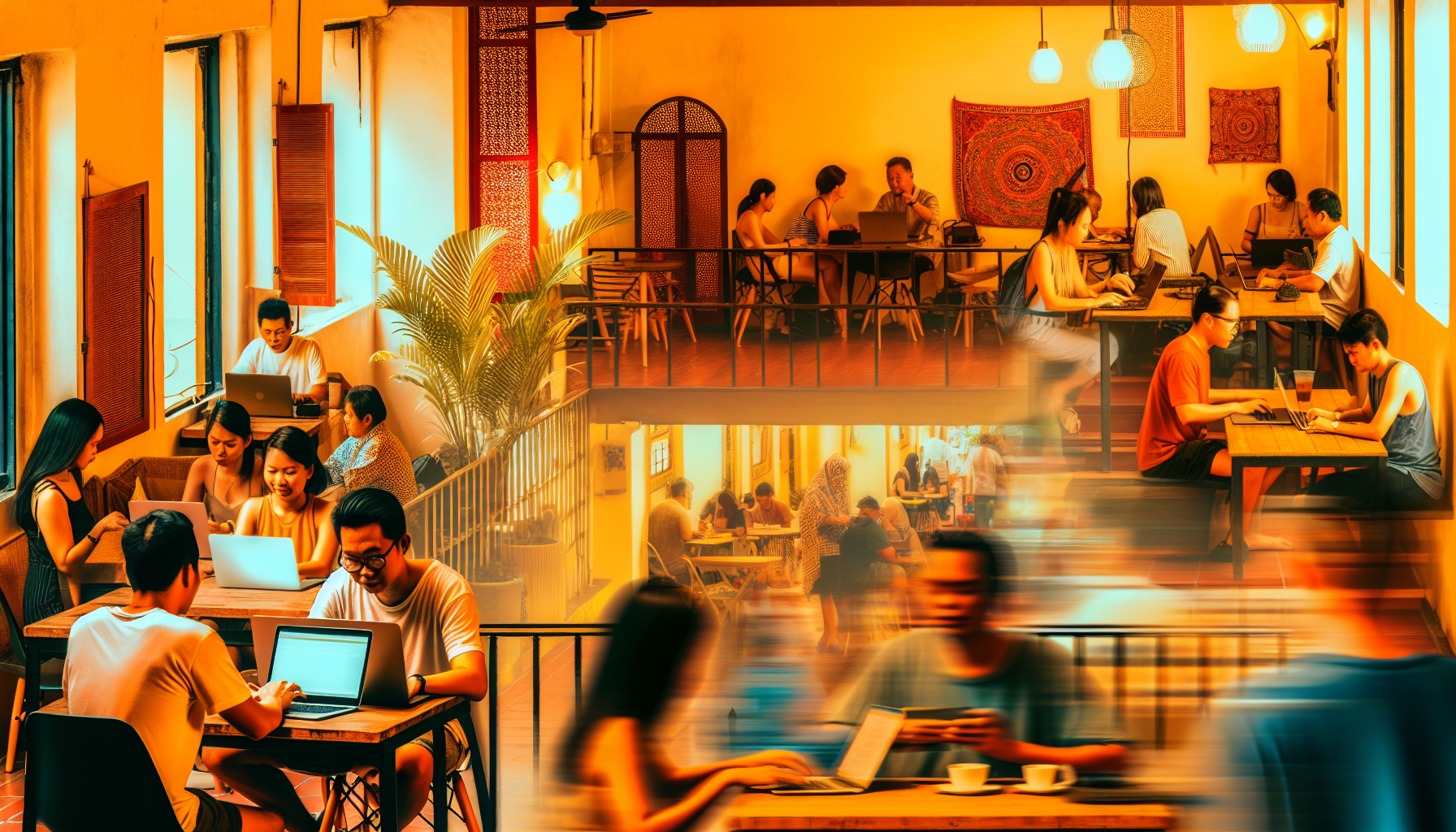Why Digital Nomads are Flocking to the Philippines
Imagine being able to work from a pristine beach, sipping on a fresh coconut while tapping away on your laptop. This isn’t just a vacation fantasy; it’s a daily reality for many digital nomads who have set their sights on the Philippines. The archipelago, with its stunning landscapes, friendly locals, and affordable lifestyle, has quickly become a hotspot for remote workers from all over the globe.
Key Takeaways:
- Affordable cost of living makes the Philippines highly attractive to remote workers.
- The country offers breathtaking natural landscapes and recreational activities.
- Filipinos are famously warm and hospitable, aiding cultural assimilation.
- Increasingly robust internet infrastructure and tech-friendly cities cater well to nomadic life.
- English is widely spoken, making communication effortless.
Affordable Cost of Living
One of the most compelling reasons digital nomads are choosing the Philippines is its affordability. Imagine enjoying a beachfront apartment, three meals a day, transportation, and entertainment, all for a fraction of what you’d spend in Western countries. Cities like Cebu and Davao offer a wide range of accommodations and amenities without burning a hole in your pocket.
For instance, you can rent a comfortable apartment in Cebu City for as low as $300 a month, leaving you with plenty of disposable income to enjoy the local culture and activities. Kevin, a digital marketer who moved to Davao last year, shares, “Living here has allowed me to save a significant portion of my income while also enjoying a better quality of life.”
Breathtaking Natural Landscapes and Activities
From the turquoise waters of Boracay to the lush mountains of Baguio, the Philippines is a treasure trove of natural wonders. Digital nomads find themselves living in proximity to some of the world’s most beautiful beaches, diving spots, and hiking trails. This accessibility allows for a perfect balance between work and leisure, a vital aspect of maintaining a healthy work-life balance.
The warm climate year-round also ensures that you can indulge in outdoor activities any time you wish. Sarah, an adventure blogger, says, “The Philippines has endless opportunities for adventure. I’ve gone scuba diving, explored hidden waterfalls, and hiked up volcanoes—all while keeping up with my client deadlines.”
Warm and Hospitable Locals
Another significant perk is the enchanting Filipino hospitality. Known as the “Land of Smiles,” the Philippines offers a welcoming atmosphere that helps expatriates easily integrate into the local community. Filipinos are warm, friendly, and incredibly generous, making your transition smooth and enjoyable.
Immersing yourself in local culture can be a rich and rewarding experience. Whether it’s joining a fiesta or trying out Filipino delicacies like lechon and balut, there’s never a dull moment. The welcoming nature of the locals also makes it easier to network and find new friends, both in and out of the digital nomad community.
Robust Internet Infrastructure
Reliable internet is a non-negotiable necessity for digital nomads, and the Philippines is stepping up its game with ongoing infrastructural improvements. Cities like Manila, Cebu, and Davao offer strong internet connections, coworking spaces, and cafes equipped with Wi-Fi, making them ideal for remote work.
New initiatives are also being rolled out to expand reliable internet access to more remote areas, ensuring that even in a secluded island or mountain village, you can stay connected.
Understanding English is a Breeze
One of the major advantages of living in the Philippines is the widespread use of English. The country is the third-largest English-speaking nation in the world, making communication straightforward and stress-free for digital nomads. Whether it’s handling work calls, shopping for groceries, or navigating through the cities, language barriers are virtually non-existent.
Comparison Table: Popular Destinations for Digital Nomads
| Location | Cost of Living | Internet Quality | Attractions |
|---|---|---|---|
| Cebu City | Low | High | Beaches, nightlife |
| Manila | Medium | Very High | Historical sites, malls |
| Davao | Low | High | Nature parks, diving |
| Boracay | Medium | Medium | Beaches, water sports |
Living or Experiential Tips
- Accommodation: Utilize platforms like Airbnb or local Facebook groups to find budget-friendly and comfortable living spaces.
- Coworking Spaces: Explore local coworking spaces such as The Office Project (TOP) in Cebu or Workplays in Manila for professional environments with reliable internet.
- Local Cuisine: Don’t miss out on trying local foods. Visit night markets and local eateries to savor authentic Filipino dishes.
- Cultural Immersion: Attend local festivals and events to experience Filipino culture fully. Pahiyas Festival and Sinulog are must-see events.
- Travel Smart: Use local apps for transportation like Grab and Angkas to navigate the cities efficiently.
With its compelling mix of affordability, natural beauty, and cultural warmth, the Philippines offers a dreamlike scenario for digital nomads. Its growing infrastructure and tech-friendly environment further make it an ideal destination. Whether you’re looking to stretch your dollar, explore rich landscapes, or integrate into a welcoming community, the Philippines has it all.
For further reading:
- Nomad List – Philippines: https://nomadlist.com/philippines
- International Living – Philippines: https://internationalliving.com/countries/philippines/
- Digital Nomad World – Living in the Philippines: https://digitalnomadworld.com/destination/philippines/
FAQ
What is the visa situation for digital nomads in the Philippines?
Most international visitors can stay for up to 30 days without a visa, and extensions are available for up to six months, making the Philippines an accessible and flexible option.
How safe is the Philippines for expatriates?
While there are areas with travel advisories, most of the Philippines is safe for expatriates. Cities like Cebu, Davao, and Manila are friendly to foreigners. Always stay informed about local conditions and follow travel advisories.
What healthcare options are available?
The Philippines offers both public and private healthcare systems. Expats generally prefer private hospitals for their higher quality of service. Health insurance is recommended and quite affordable, ensuring you have access to the best care available.
